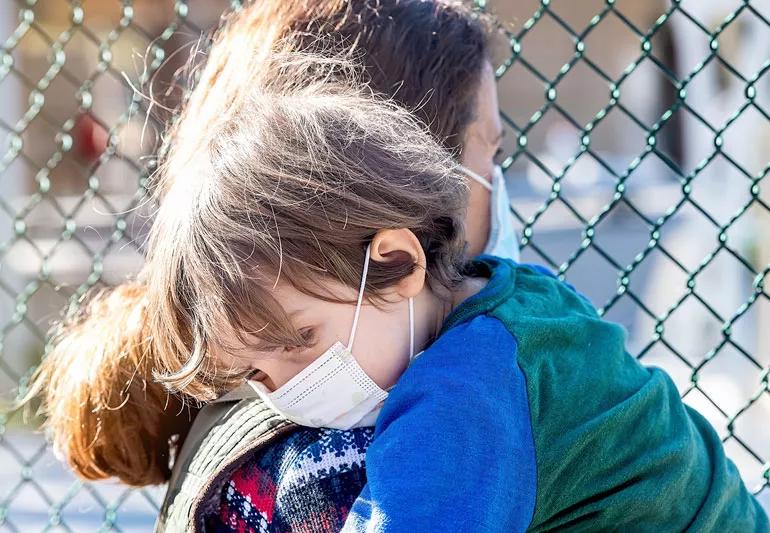School can be a powerful ally during your treatment

If you’re a parent with cancer and have school-age children, it might be a good time to start thinking about having a talk with your child’s teachers, counselors or school administrator about your cancer.
Advertisement
Cleveland Clinic is a non-profit academic medical center. Advertising on our site helps support our mission. We do not endorse non-Cleveland Clinic products or services. Policy
It might feel daunting or even overwhelming to divulge such personal information to your child’s school personnel. Staff doesn’t need all of the details about your illness and treatment. But providing them with enough information to understand what your child is going through can go far says pediatric psychologist, Kate Eshleman, PsyD
If you feel this conversation might be too much for you, talk with your spouse, another parent who has gone through this situation or the social worker at your cancer center about having this important discussion with the school staff.
There are several good reasons to talk with the people who are with your child for the majority of the day.
Advertisement
When you meet with your child’s teacher, ask them to be your partner in keeping your child’s life as normal as possible. Also, be sure to talk with the school guidance counselor. They have special training and expertise that can help your child deal with circumstances at home.
Some children, especially teenagers, may not want you to talk to their teachers. This may stem from a worry about being different from their peers. And younger children should not have to shoulder adult worries. So consider talking to the teacher in private – if you cannot arrange a face-to-face meeting, at least communicate by email or phone.
Later, let your children know that you have spoken with the teacher. This can pave the way for future conversations. Let your child know their teacher is there if they need them and already knows the situation.
Don’t hesitate to make specific requests of your child’s teachers. For example, if you find that your child is forgetting to do her homework, know that it’s alright to ask the teacher for a little extra support because your child might be distracted or needs time with you. Or your child may find a homework assignment, such as reading a book about a parent having cancer, too painful to complete.
Your child’s teachers and school staff can be powerful partners as you move through cancer treatment and beyond. Give them the information they need to help your child as much as they can.
Advertisement

Sign up for our Health Essentials emails for expert guidance on nutrition, fitness, sleep, skin care and more.
Learn more about our editorial process.
Advertisement

The best parenting style balances enforcing rules and showing plenty of love

If parents can’t get along with one another, they’ll need to determine what’s best for their child in separate situations

This burnout is characterized by physical and mental exhaustion and feelings like worry, guilt and overwhelm

It’s important to share the news in an honest and age-appropriate way and to open the lines of communication going forward

Don’t lose sleep over color palettes — your ‘sad beige baby’ couldn’t care less

Communicating with your family, setting expectations and finding healthy distractions can make life easier once your kiddo flies the coop

Setting specific expectations and praising good behavior are crucial to cultivating discipline

Posting intimate details of your child’s life on social media, like their birth date and school name, can have serious consequences

Even small moments of time outdoors can help reduce stress, boost mood and restore a sense of calm

A correct prescription helps your eyes see clearly — but as natural changes occur, you may need stronger or different eyeglasses

Both are medical emergencies, but they are very distinct events with different causes